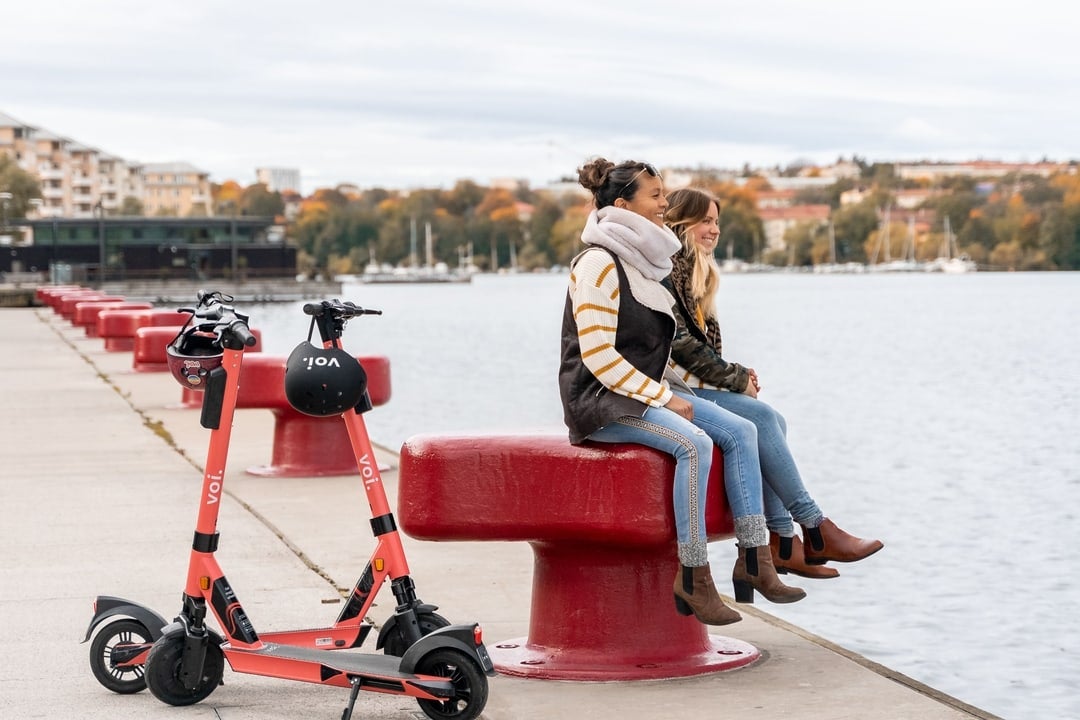
Swedish micromobility startup Voi is adding computer vision technology to its electric scooters to detect heavily pedestrianised areas and automatically reduce speeds.
Voi has partnered with smart city company Luna to implement the computer vision technology, which comprises of high-end camera sensors. Algorithms will interpret input from these sensors, which will be processed using edge computing – an approach where data crunching is carried out closer to the location it is needed to reduce latency.
The technology will also be able to detect the surface that an e-scooter is being ridden on, such as a bike lane or pavement, and adjust speed accordingly.
The Stockholm-based company claims to be the first e-scooter operator to add computer vision to its vehicles. Voi told Verdict that its e-scooters are currently not equipped with the necessary hardware for computer vision, but it will be integrated over time.
This move is geared towards assuring regulators that e-scooters offer an alternative and safe method of transport for pedestrians, riders and other road users. Concerns have been raised in cities where e-scooters have been driven irresponsibly on pavements and other crowded areas.
Luna will also provide Voi with GPS technology with “centimetre-level accuracy” to help ensure e-scooters are being parked in designated areas to reduce street clutter.
Voi, which operates in 50 cities in 11 countries, said it will roll out a test of its computer vision technology in Northampton, UK, “immediately”.
Initially, the trial will see the e-scooters ‘learn’ the city environment, before being fully integrated into the vehicles across the city.
Depending on the results, it will then roll out the update across the rest of its locations in Europe.
“With this trial, we look forward in particular to exploring how computer vision equipped e-scooters can improve the experience for riders, pedestrians, vulnerable road users, the Voi operations team, as well as local authorities themselves,” said Andrew Fleury, co-founder & CEO, Luna.
“The onus to date has been on pedestrians to detect, avoid and navigate around scooters. Luna’s smart scooter technology flips that around and allows operators and cities to govern their fleets better and avoid these conflicts to begin with.”
Fredrik Hjelm, co-founder and CEO of Voi Technology, said: “We are embracing pioneering technology like this so that we can help shape cities for living, and to ensure that municipal authorities feel confident in including e-scooters as part of their smart city strategies.
“Having facilitated more than 30 million rides to date we understand deeply the issues involved in e-scooter safety. We believe in educating riders, but also in providing them with the kind of technology that supports them to use e-scooters responsibly.”
In July the UK government launched a year-long rental e-scooter trial in select locations around the country. Voi is one of a handful of operators taking part in e-scooter trials in select locations across the UK.
While e-scooters are banned on pavements and limited to top speeds of 15.5mph, concerns have been raised about the risk to pedestrians – particularly those with disabilities.
Last week micromobility startup Tier announced plans to add speakers to its e-scooters to alert visually impaired pedestrians of their approach.
Read more: Voi rolls out hundreds of e-scooters in Cambridge trial







